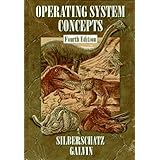Pdf Ebooks Operating System Concepts
operating system concepts. Book lovers, when you need a new book to read, find the book here. Never worry not to find what you need. Is the operating system concepts your needed book now? That's true; you are really a good reader. This is a perfect book that comes from great author to share with you. The book offers the best experience and lesson to take, not only take, but also learn.
For everybody, if you want to start joining with others to read a book, this operating system concepts is much recommended. And you need to get the book here, in the link download that we provide. Why should be here? If you want other kind of books, you will always find them. Economics, politics, social, sciences, religions, Fictions, and more books are supplied. These available books are in the soft files.
Why should soft file? As this operating system concepts, many people also will need to buy the book sooner. But, sometimes it's so far way to get the book, even in other country or city. So, to ease you in finding the books that will support you, we help you by providing the lists. It's not only the list. We will give the recommended book link that can be downloaded directly. So, it will not need more times or even days to pose it and other books.
Collect the operating system concepts start from now. But the new way is by collecting the soft file of the book. Taking the soft file can be saved or stored in computer or in your laptop. So, it can be more than a book that you have. The easiest way to reveal is that you can also save the soft file of operating system concepts in your suitable and available gadget. This condition will suppose you too often read in the spare times more than chatting or gossiping. It will not make you have bad habit, but it will lead you to have better habit to read book.
Study Guide To Accompany Operating Systems Concepts 9th Ed ...
study guide to accompany operating systems concepts 9th ed by silberschatz galvin and gagne . by andrew denicola bu ece class of 2012 . system call request to the operating system to allow user to wait for io completion device status table contains entry for each io device indicating its type address and state
Operating
fundamental operating system concepts. particular attention is paid to linux and microsoft windows but we also refer to various versions of unix including solaris bsdandmacos x. . also .
Operating System Concepts 9 6.2 Silberschatz Galvin And ...
2 operating system concepts 9th edition 6.7 silberschatz galvin and gagne 2013 dispatcher dispatcher module gives control of the cpu to the process selected by the short term scheduler this involves switching context switching to user mode jumping to the proper location in the user program to restart that program dispatch latency time it takes for the dispatcher to stop
Lecture Notes On Operating Systems
to make the students understand the basic operating system concepts such as processes threads scheduling synchronization deadlocks memory management file and io subsystems and protection. to get acquaintance with the class of abstractions afford by general purpose operating systems that aid the development of user applications.
Instructor S Manual To Accompany Operating System Concepts
operating system concepts seventh edition abraham silberschatz yale university peter baer galvin corporate technologies greg gagne westminster college. preface this volume is an instructor s manual for the seventh edition of operating systemconceptsbyabrahamsilberschatzpeterbaergalvinandgreggagne.
Solution Operating System Concepts By Galvin
solution operating system concepts by galvinsilberschatz solved by abhishek pharkya part 1 theory what is the primary difference between a kernel level context switch between processes address spaces and a user level context switch the primary difference is that kernel level context switches involve execution of os code.
Operating System Concepts Gimmenotes.co.za
operating system concepts. part one overview . chapter 1 introduction an operating system is a program that manages the computer hardware provides a basis for application programs acts as an intermediary between computer user and hardware provides an environment within which other programs can do work objectives

